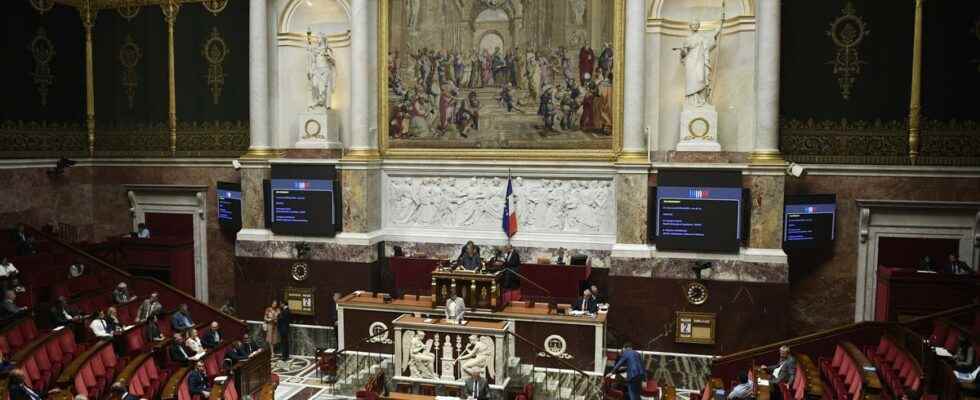Led by a Renaissance deputy and an Insoumis, this mission will have to deliver its conclusions before the arrival of the 2023 budget in the Assembly, in October.
Top start for the elected officials who will analyze with a magnifying glass the actors having garnered “superprofits” for a few months. Gathered within theflash mission on the oil and gas companies and those in the shipping sector that have made windfall profits during the crisis“, these deputies will start their hearings this Tuesday afternoon, by receiving representatives from Ufip Energies and Mobility.
Last August, the Chairman of the Finance Committee, Éric Coquerel, explained to Les Échos that this mission aimed to “see more clearly“. She should normallysubmit its conclusions before the arrival of the finance bill in the Assembly at the beginning of October“. It will be followed by another, more substantial, on business taxation, which will last six months. “The big companies are the only ones who are not called upon to make more efforts in this country, while they are making historic profits. I think the French find it unbearable“, then justified the Insoumis.
Led by rapporteurs David Amiel (Renaissance) and Manuel Bompard (LFI-Nupes), the flash mission brings together different political groups, represented by Marie-Christine Dalloz (LR), Christine Pires Beaune (PS-Nupes) and Jean-Philippe Tanguy (RN). On Tuesday, she will receive the president of Shell, Vincent Baril, representatives of the oil companies Picoty and Thevenin-Ducrot, and several distributors at the end of the day during a round table.
A complex and explosive subject
Highly controversial, the track of taxing the “superprofitsgarnered by the giants of certain sectors divides deeply, including within the parties themselves. At the beginning of September, Emmanuel Macron pleaded for a European mechanism for the contribution of “energy operators“, a track also defended by Minister Agnès Pannier-Runacher, this weekend. “Those who produce energy at a price that has not changed“, but who sell it”at a skyrocketing price“, it would be “normal that part of this profit returns to the state budget and that it is used for consumers“, she argued during the RTL-Le Figaro-LCI Grand Jury.
In the National Assembly, the Nupes ardently defends the track of a taxation of companies having garnered “superprofitsin recent months thanks to rising energy prices. Important questions arise, however: what is a superprofit? Which companies would be affected by the tax? Until when would it be operational? Would the device be constitutional? Questions that will have to be addressed before this track is admissible.
